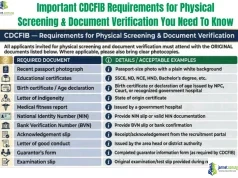The Canadian government has implemented two major policy changes concerning international students: immediately raising the off-campus work limit to 24 hours per week during academic sessions (effective November 8, 2024) to provide financial flexibility, while simultaneously announcing a profound reduction in future student intake. Under the 2026–2028 Immigration Levels Plan, new student arrivals are projected to be cut by 49%, targeting only 155,000 students, alongside increased scrutiny for document fraud, notably impacting applicants from countries like India and Bangladesh, signalling a much stricter and more competitive environment for prospective study permit holders.


Canada Announces Immediate Change: 24-Hour Off-Campus Limit
Effective November 8, 2024, the government has updated its definition of off-campus work to allow eligible international students to work up to 24 hours per week during regular academic sessions. This marks an increase from the previous standard limit of 20 hours per week.

Join our Telegram Channel for Instant Scholarship Updates
Off-campus work is defined as employment undertaken outside the facilities of the student’s registered educational institution. This flexibility is intended to help study permit holders manage their cost of living and gain valuable work experience without requiring a separate work permit.
It is important to note that students remain permitted to work full-time during regularly scheduled breaks between academic sessions (such as summer or winter holidays) without needing a work permit.
Clarifying The Work Permit Eligibility and Restrictions
Canadian working rules for foreign students are clear regarding who is eligible to work off-campus and when a work permit is mandatory.
On-Campus Work
Holders of post-secondary study permits who are enrolled as full-time students are permitted to work on the campus of their university or college. This type of employment, referred to as on-campus work, occurs at the institution’s facilities and is generally permissible for the duration of the study permit.
When Off-Campus Work is Prohibited
A student is not authorized to work off-campus without a separate work permit if:
- Their study permit includes a specific condition stating they are not authorized to work off-campus while studying.
- They are only enrolled in an English or French as a second language program.
- They are no longer enrolled full-time (unless specifically exempted, e.g., in their final semester).
Policy Change Outlook: Future Reduction in Student Intake
While the increase in working hours offers immediate benefit, the Canadian government has also signaled a major policy realignment focused on curbing the rapid growth of temporary resident populations, including international students.
Canada’s 2026–2028 Immigration Levels Plan projects a deep cut in new student arrivals. The plan aims for only 155,000 new student arrivals during this period, which represents a 49% reduction from the previous year’s targets.
Furthermore, the federal government is seeking new powers to address fraud concerns in certain regions. Specifically, Canada plans to implement tougher norms and seek the authority to cancel specific visa applications, driven by heightened concerns over document fraud originating from countries like India and Bangladesh.
These policy shifts suggest that while current students have more flexibility, future applicants will face a significantly tighter admission environment.
Frequently Asked Questions (FAQ)
- What is the new maximum limit for off-campus work hours? The new standard limit is 24 hours per week during regular academic sessions, up from the previous 20-hour limit.
- When did the new 24-hour limit officially take effect? The increase officially took effect on November 8, 2024.
- Can I work full-time if my university is on summer break? Yes, if you were a full-time student during the preceding academic session and will return as a full-time student, you are generally authorized to work full-time during scheduled academic breaks.
- What is the difference between on-campus and off-campus work? On-campus work is employment at your school’s facilities. Off-campus work is employment anywhere else and is subject to the 24-hour weekly limit during classes.
- Do I need a separate work permit for on-campus employment? No, if you are a full-time post-secondary student, your study permit typically authorizes you to work on-campus without an additional permit.
- What happens if I exceed the 24-hour limit during a study session? Working more than the authorized hours is a violation of your study permit conditions and can lead to serious consequences, including losing your student status and being required to leave Canada.
- If my program is purely English as a Second Language (ESL), can I work off-campus? Generally, no. Off-campus work is typically prohibited for students only enrolled in ESL or FSL (French as a Second Language) programs, unless the program is prerequisite to a main academic program.
- Is the 24-hour limit a temporary measure? Unlike previous temporary policy lifts, the 24-hour limit is established as the new standard rule, replacing the long-standing 20-hour limit for all eligible students.
- What should I do if my study permit still says “20 hours”? The new 24-hour policy overrides the old condition for eligible students. However, you should always comply with the most current government rules and verify your eligibility with IRCC documentation.
- How will the Immigration Levels Plan affect future student applications? The plan projects a major reduction, aiming for only 155,000 new student arrivals between 2026 and 2028, signaling a significantly tighter acceptance rate and increased visa scrutiny.
- Why is the government tightening admission standards and reducing intake? The policy shift is primarily aimed at managing the rapid growth of the temporary resident population and addressing concerns related to housing strain and the integrity of some visa applications (document fraud).
- Which countries are subject to increased scrutiny regarding document fraud? The government has specifically mentioned heightened concerns and tougher measures regarding applications originating from countries such as India and Bangladesh.
- If I drop to part-time student status, can I still work off-campus? No. You must immediately stop working off-campus if you change your status from full-time to part-time, as maintaining full-time enrollment is a core condition for the off-campus work authorization.
- Does the 24-hour work limit apply to co-op or internship placements? No. Co-op and internship placements require a separate Co-op Work Permit and are considered part of the academic program, not subject to the 24-hour off-campus limit.
- Where can I find the official documentation confirming my eligibility to work? Your specific work authorization status and conditions are printed directly on your study permit and are subject to the regulations detailed on the official Immigration, Refugees and Citizenship Canada (IRCC) website.













